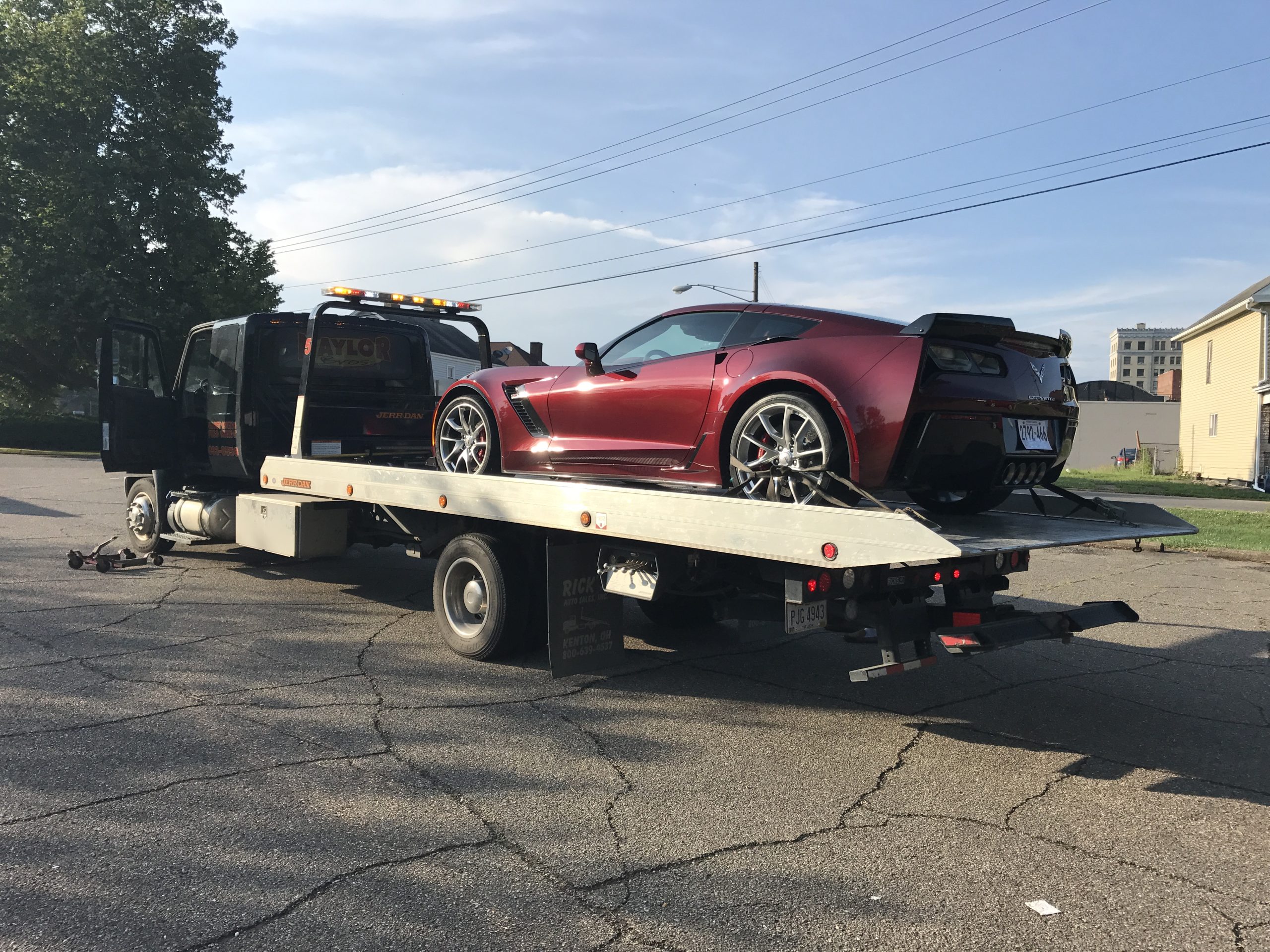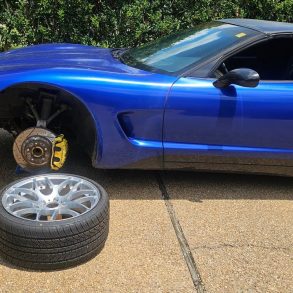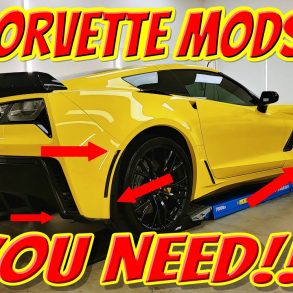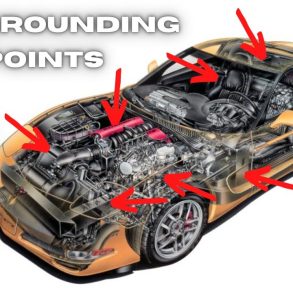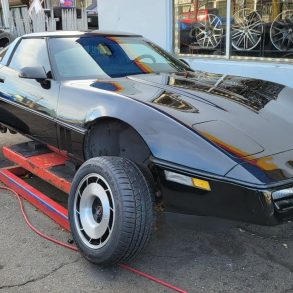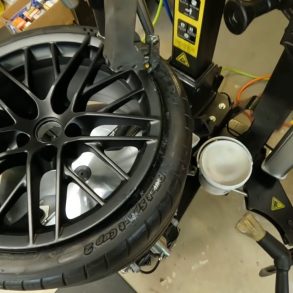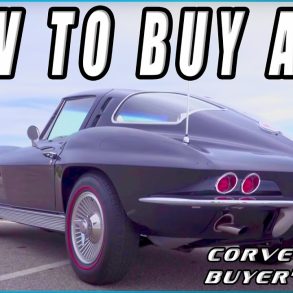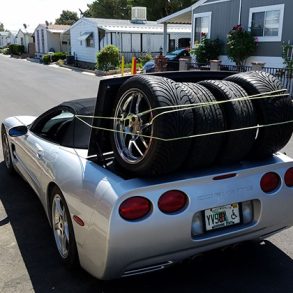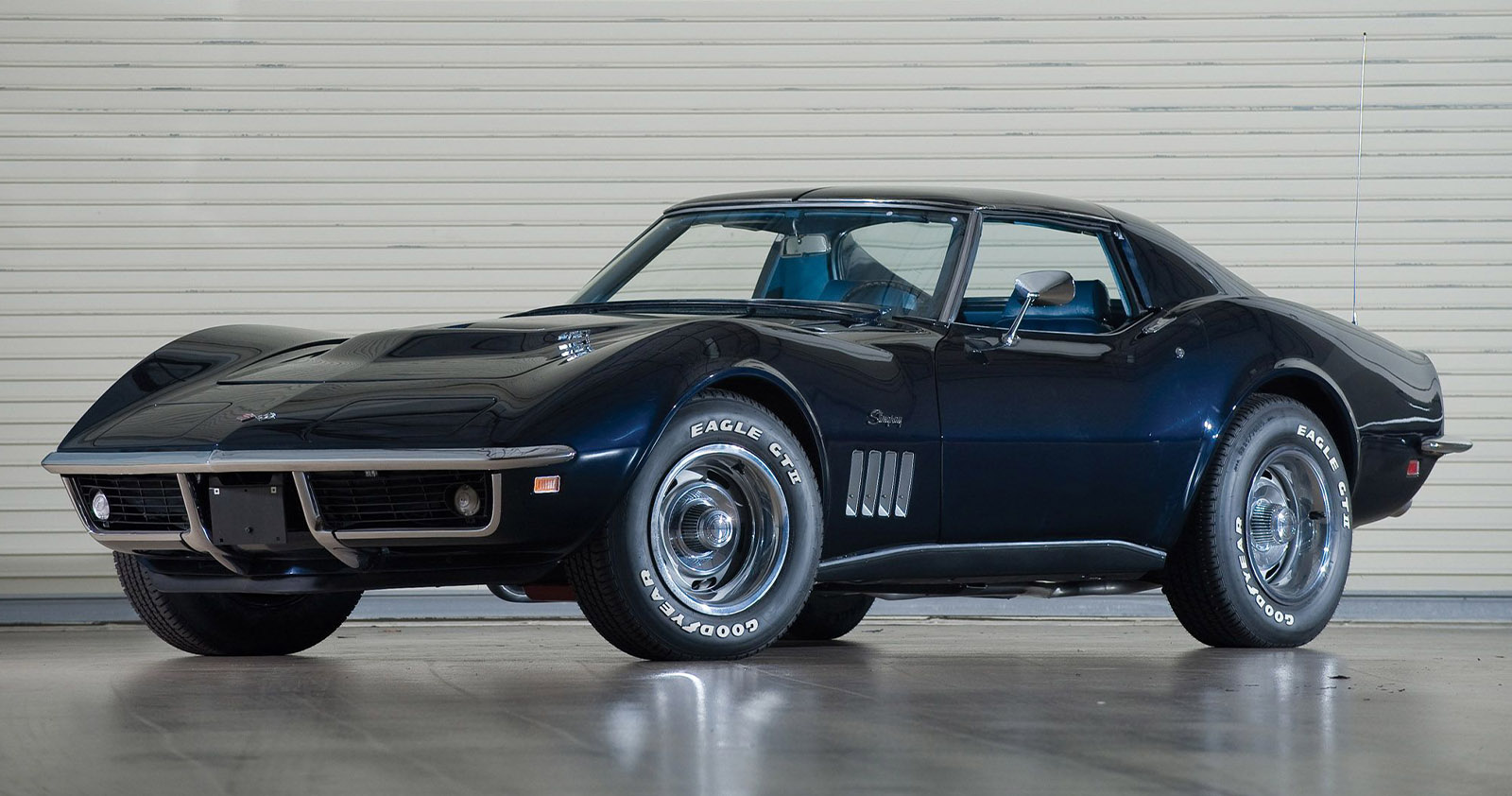CorvSport is passionate about all things Corvette, and that includes helping you keep your ‘Vette in its best possible condition. Our CorvSport Curates series was designed to meet your needs as a Corvette enthusiast, from choosing the most popular tires to selecting the best oil for your treasured possession. In addition to our own original content, there is a wealth of data and knowledge about America’s Sports Car on the internet, and we obsessively scour popular YouTubers and publications to bring it to you.
Think of us as your digital encyclopedia. For your convenience, we have our full CorvSport Curates database below today’s feature. Today, we visit C&S Corvettes, which has over 86,000 YouTube subscribers and has established itself as one of the top voices in our hobby. Not only does C&S specialize in new, used, and reproduction Corvette parts, but they also have the mechanical background and experience to seal the deal.
On an interesting side note, C&S was one of the players attempting to outbid the other heavy parts hitters with Roger’s Corvette Center’s massive parts collection, which he put up for auction after his retirement. That impressive collection of collector parts eventually brought $143,000, and if you have the time, you can view our two features here: Iconic Retired Corvette Dealer Is Selling The Most Insane Parts Collection You’ll Ever See, and CorvSport Exclusive: We Talk To The Man Who Just Paid 6-Figures For Historic Corvette Parts Collection.
Now, let’s jump into today’s list, where Lyle from C&S talks about the top 10 most neglected maintenance items. We know you live a busy lifestyle, so format our curated series for easy reading, with options to read as much as you want. We’ve also included the full video below, and don’t forget about our CorvSport Curates archives!
Enjoy an ad-free experience, get exclusive content, and support CorvSport for only $2.92/month!
The Top 10 Most Neglected Corvette Maintenance Items
Tip #10 [2:04]: Don’t forget about your weather stripping!
“Weather strip is not glamorous. It doesn’t win you any trophies at shows. But Weather Strip does do something really important. It keeps water out of the interior of your Corvette. And with care, weather strip can last a lot longer than if you just leave it alone and never pay attention to it. Weather Strip being rubber or latex or some combination thereof tends to dry rot with time, especially in areas like ours here in Florida where we have a lot of high UV exposure.
Some of the things you can do to help prevent that is to treat your weather strip with something like the 303 aerospace product or 303 rubber nourishing products… I don’t have any affiliation with 303, but they make really good stuff. And if you apply this two, three times a year to your weather strip, it’s going to last a lot longer than if you do not. Remember, important point, don’t ever put any petroleum-based products on your weather strip. And for goodness’ sake, never use Armorall on your weather strip. In fact, never use Armorall at all.”
Tip #9 [3:09]: Listen carefully for weird drivetrain noises
“Now, we know I talk a lot about torque tubes, and it’s not something you can really physically inspect, but this is where having a relationship with your car and knowing your car really well by having it for years and driving it and spending time with it, you start to hear weird things when you’re like, ‘Huh, that tiny noise. What is that?’ Happened to me on my way back from Sebring — two weeks ago when Steve was out running his car. My son and I drove over there in my Corvette, and on my way home, I started hearing these weird little noises from the shifter.
Like, man, is my throw-out bearing going bad? Is it this? Is it that? And you know, it’s about an hour and a half drive. And near the end, I was a mile away from my house, I was having a hard time even shifting it into gear. I’m like, ‘Oh, this isn’t good.’ So, I figured it was either slave cylinder or it was a torque tube problem. And I got a burning rubber smell sitting at a light. I was like, ‘Aha, it’s a coupler.’ And sure enough, I had Andy tear the car apart on the weekend… Just age… you know, my car gets a lot of attention from me and from the other people here as far as maintenance and this still snuck up on me. So, while you can’t physically inspect the torque tube, if you start hearing anything weird coming from the drivetrain, investigate it first before it becomes a big problem and strands you somewhere.”
Tip #8 [4:34]: Remember to check your wheel bearings
“I recommend you check all four wheel bearings at every oil change while the car is in the air. Easy to make sure that you’ve got no real movement that you shouldn’t have in that, because if wheel bearings, when they start going bad, can go bad very quickly. You start hearing that growling, they start building heat, and they can fail fairly quickly—and you don’t want that to happen when you’re on a road trip from Muskegon to Miami.”
Tip #7 [4:58]: Don’t be shocked — check them, too!
“Shocks are a deceptively simple thing that go bad slowly, and that’s what makes them difficult to diagnose, because they go bad so slowly you really don’t notice it until you change the shocks. You’re like, ‘Oh my gosh, I didn’t know my car could be this way.’ So, pay attention to shocks. Again, when you have the car in the air for an oil change, look for any leakage or anything like that. And if your shocks are more than 10 years old, change them.”
Tip #6 [5:25]: Safety first! Check those tires
“Yes, obviously, we can tell when tires are bald, and we can tell when they’re getting dry rotted. Tires with age, especially on cars like Corvettes that don’t tend to be driven all the time, everywhere — they tend to be third or fourth cars. Once your tires have six, seven, or eight years on them, you really need to start paying very close attention to them, because at about six, seven, or eight years, I’d recommend you replace them—no matter how good your tread is—just so the aging of the rubber doesn’t cause a blowout that could cause you serious problems, hurt you, hurt your car, or hurt other people.”
Tip #5 [6:00]: Inspect your heater and coolant hoses
“This is one of those things that thankfully you can test very easily, but most people ignore them because as long as they are still black rubber and they aren’t leaking fluid, we just assume they’re good. You can always squeeze test them, and if they feel gummy or tacky or they just feel kind of not great, you know that it’s time to replace them. Thankfully, they’re readily available and they’re inexpensive.”
Tip #4 [6:23]: Fluid leaks vs. your belts, idler pulleys, and belt tensioners
“Fluid leaks on your engine kill belts. Power steering leaks, coolant leaks, anything like that, they kill belts because again, any petroleum-based product is going to hurt rubber, and that’s what belts are made of. Idlers and tensioners tend to age more because of time than use. Especially the bearings in the idlers go bad and then the tensioners, especially on the C5 and C6, with age tend to start leaning away from the block, which kills the alignment of your belt and kills your belt too.
We always do these whenever we do a harmonic balancer or what we call our front engine kit, but something to keep an eye on because unless they’re squeaking or making noise, we don’t tend to pay much attention to them. Honorable mention, power steering fluid. Again, if you don’t have a leak and the power steering’s working, people don’t tend to pay attention to it. Believe it or not, you should be changing that every two years. Thankfully, it’s relatively easy to change and it’s very inexpensive to do that job, but most people don’t think about it. Two, every two years it should be changed.”
Tip #3 [7:29]: Maintenance schedule for your trans and diff fluids
“Number three, another two things actually that I’ve put into one step, your transmission and your differential fluid. Another one of those things that, hey, if it’s working great and it isn’t leaking and the car is running fine, you don’t think about it. But you really should replace your differential fluid every 2 to 3 years. And you should replace your transmission fluid, whether it’s manual or automatic, every 3 to 5 years. This is why having a log, a little book that you keep track of all your maintenance in, or a thumb drive like we give our customers, that’s called a Vette tracker, so that you know when your fluids have been changed so you can keep up with that schedule.”
Tip #2 [8:06]: Remember to flush your engine coolant
“You want to flush and replace that every 5 years at a minimum because coolant, very important thing, and if it’s not leaking and if your car isn’t overheating, people tend not to think about it. But if your coolant starts to go bad because coolant does break down over time, and it can become… the pH can change and can start doing things inside your engine and your radiator that you don’t want it doing if it’s too old and too tired. So every 5 years, change that.
Tip #1 [8:38]: Don’t ignore your brake fluid!
“You’re like brake fluid, that’s your number one thing? Yes. Here’s why. Nobody changes it. Nobody. Because as long as the brakes are working, you’ll change your pads. You’ll change your rotors. Nobody changes the fluid because it’s fine. You need to change your brake fluid every two years. Actually, you need to do the same for your clutch fluid.
Here’s why. Brake fluid absorbs moisture. It absorbs impurities. And what happens is it holds on to them and it forces it all through your system, including those tiny little passageways in your ABS pump and all the other things… all the other little places that fluid has to go. It is now depositing all this little bit of grit and dirt and filth. And that can turn out to be a very big problem for you, especially finance-wise, because if your ABS pump goes bad, it’s not going to be inexpensive to replace. And you really can’t just knock it apart and clean it. So, brake fluid every 2 years, clutch fluid every 2 years. It is probably the most worthwhile maintenance item you can do while you’re doing other stuff that will save you money and save your car problems down the road.”
Featured Video
Video Preview From C&S Corvettes:
“Every Corvette owner knows maintenance is key — but some things just seem to get overlooked. In today’s video, we go over a few of the most commonly neglected areas that can make or break your Corvette ownership experience. Whether you’ve had yours for years or just picked one up, you’ll want to make sure these don’t slip through the cracks.”
Video Stats (as of 11/04/2025):
- Views: 19,601
- Likes: 1,700
- Comments: 118
- Length: 10:27
Top Video Comments:
- “Lyle spoke at our corvette club meeting He is a wealth of knowledge and not just after a quick buck I wish stealer ships were honest like Lyle.” @billinsd1
- “Wisdom, wisdom, wisdom,…(ten times over…)” @roninsc
- “Wow. I’m seriously behind on doing most of this. Just proves ignorance truly is bliss.” @idrivearttabletennis
Our Full CorvSport Curates Database
- CorvSport Curates: The Highest-Rated Tires For Your C4 Corvette
- CorvSport Curates: C5 Owners’ Favorite Tires For Their Corvettes
- CorvSport Curates: The Highest-Rated Tires You Can Buy For Your C6 Corvette
- CorvSport Curates: Highest-Rated Tires For Your C7 Corvette
- CorvSport Curates: Check Out The Highest-Rated Tires For Your C8 Corvette
- CorvSport Curates: Corvette Owners Vote On The Run-Flat VS Non-Run-Flat Tire Debate
- Made in the USA? Popular Oil Filter Brands For Your C5 Corvette & A WIX Warning
- CorvSport Curates: Most Popular Oil Choices For Your C6 Corvette
- Having C5 Electrical Issues? CorvSport DIY Guide To The Ground Points On Your Corvette
- CorvSport Curates: The Top Seven C7 Corvette Complaints
- CorvSport Curates: “Ten Rules For Buying Your First C3 Corvette”
- CorvSport Curates: Hagerty’s Buyer’s Guide For The C2/Mid-Year Corvette
- CorvSport Curates: “Easy Corvette Mods You Can Do To Make a Huge Difference On A C7 Stingray, Z06, Grand Sport Or ZR1!”
- CorvSport Curates: “CORVETTE REPAIR (5 Ways to Avoid Getting Ripped OFF!)”
Thanks for joining us today on this Corvette journey. Did any of these tips help you? Join the CorvSport movement!
- Engage with CorvSport’s 168,000 Facebook followers and be the first to see our daily content.
- Experience how obsessed we are and view our top 25 monthly features by visiting our digital magazine, CORVETTE OBSESSED.
- Enjoy an ad-free experience, get exclusive content, and support CorvSport for only $2.92/month!


